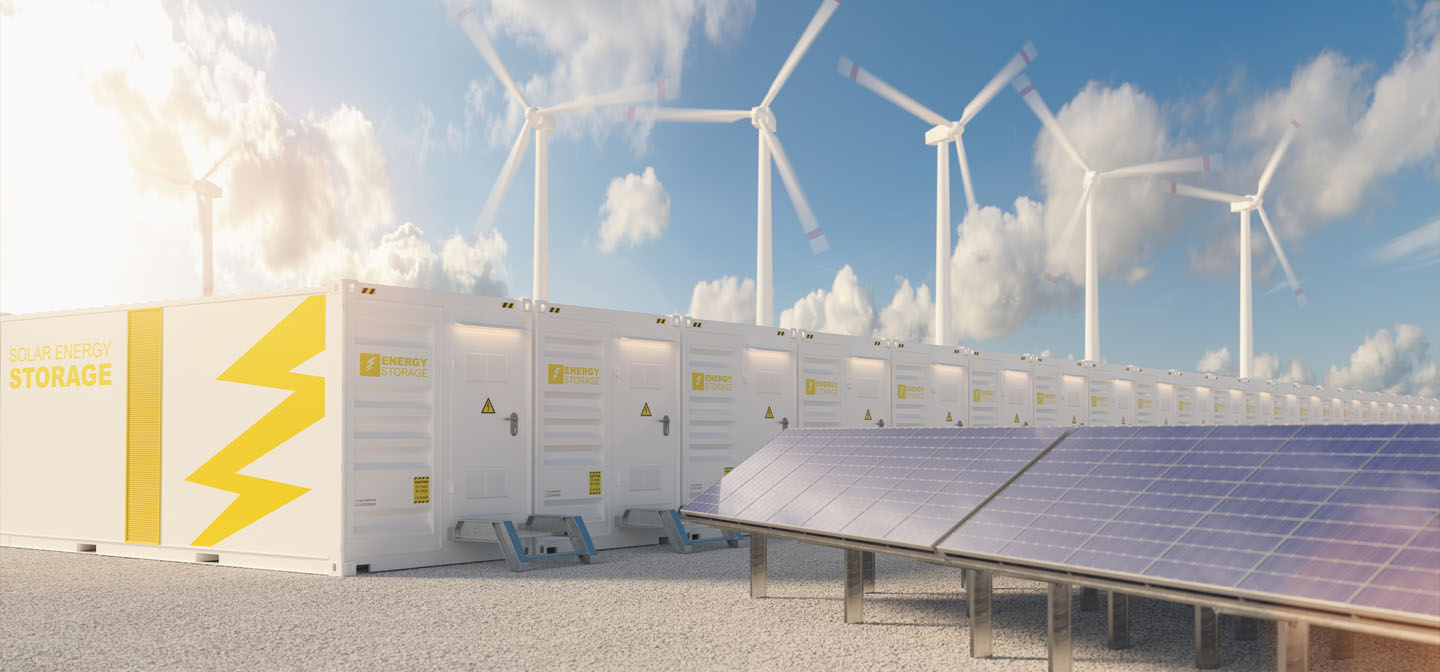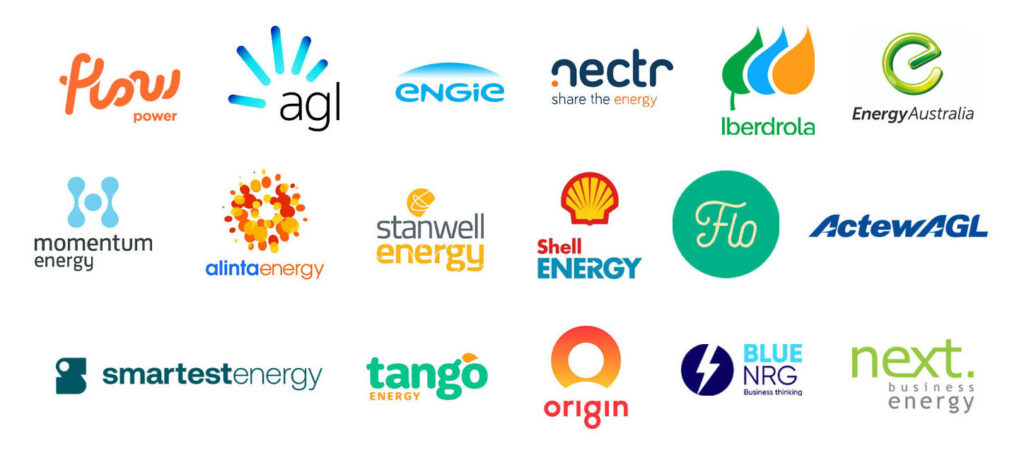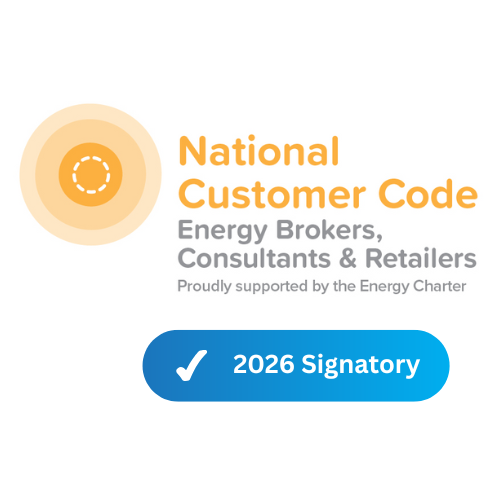
Recently, we’ve had several businesses inquiring about virtual power plants or VPPs – namely asking about what they are and whether they would serve an advantage, particularly concerning improving efficiency and cost management. As energy management consultants, we’ve taken this opportunity to address some of the more common questions about virtual power plants and how they might impact businesses, especially those with significant energy consumption.
What are virtual power plants or VPPs?
The simplest explanation of virtual power plants is that they’re an energy-sharing network. The power generated by solar panels, wind turbines, and battery storage is aggregated and controlled to provide a steady stream of electricity to customers.
VPPs are meant to manage energy in a more flexible, sustainable, and flexible manner, allowing more grid independence and bolstering the transition toward Net Zero.
What exactly do they do?
Another top-of-mind concern about virtual power plants is their function and why they matter. These are the most basic objectives of VPPs:
- Decentralising energy generation – Instead of focusing power generation on a single power plant, a VPP receives output from many smaller sources. Larger plants are usually located further away from end users because they need bigger space; decentralising means power can be produced closer to the point of consumption so it’s more efficient, resilient, and more capable of integrating renewables. The latter factor is key as the country moves forward to meet Net Zero 2050 goals.
- Enhancing energy management – Because VPPs are controlled by a central system, the process of distributing energy can be done more efficiently and more easily based on the demand, supply, and conditions of the electricity grid within a smaller, more localised area.
- Improving supply flexibility and reliability – VPPs rely on an energy mix, meaning supply gaps can still be filled when conditions aren’t optimal for certain renewable generation sources (for example, when there isn’t enough sunlight or wind).
- Supporting and stabilising the grid – They can help make the grid more resilient by regulating frequencies and controlling the voltage when necessary. VPPs are also made to swiftly respond to shifts in supply and demand.
- Incorporating renewable energy: Australia and the rest of the world are transitioning to Net Zero. And because VPPs rely on solar, wind, and other renewable sources, they enable the shift from more traditional means of electricity generation to more sustainable sources.
What are the benefits of VPPs for commercial and industrial settings?
As energy brokers specialising in helping businesses reduce electricity and natural gas costs and improve energy efficiency, we’re happy to answer this question!
There are several ways VPPs can prove advantageous to businesses, although keep in mind that these will still depend on a company’s specific energy requirements, operational processes, and objectives. But in general, here are some benefits:
- They help businesses save money – Large energy consumers can save on costs by integrating on-site renewable energy sources (like PV systems and smaller-scale wind turbines) and battery storage. Not being completely reliant on the grid, especially during peak hours, can certainly cut expenses.
- Participants can earn additional income from providing grid services – Certain demand response programs can allow participants to receive compensation. For instance, commercial and industrial energy consumers be paid in incentives or credits if they decrease usage during peak demand hours.
- VPPs be used as Corporate Social Responsibility (CSR) programs – Sustainability is one of the main goals and benefits of VPPs. Businesses that adopt the technology are essentially making a commitment to decrease their emissions and environmental impact. With markets and employees taking a greater interest in environmentally conscious companies, this can only boost a business’ CSR profile.
- Improved reliability and resilience – As mentioned earlier, VPPs use a renewables-focused energy mix, allowing businesses to keep their lights on even when there are outages in the electricity grid.
- Enhanced energy efficiency – VPPs are controlled centrally; the result is reduced waste and better efficiency as the setup allows for smart resource management.
- Net Zero compliance –VPP systems can be instrumental in a business’s path to net zero compliance because these utilise renewable energy and help reduce heavy reliance on energy generated from fossil fuels.
These are but a few advantages that virtual power plants can bring to businesses, but of course, when it comes to specifics, there can be some variation depending on a variety of factors like your company’s size and requirements, where you’re located, and even government regulations and programs. The best way to find out how your own commercial or industrial organisation will be affected by a VPP is to speak with an energy management consultant.
What kinds of solutions are available for businesses under VPPs?
Virtual power plant services have a variety of applications for businesses. Some examples are as follows:
- Battery installations
- Direct Metering Agreements
- Supplying electricity with VPP
- Solar and storage
- Electric vehicle charging
- Load flexibility
- Demand response
- Peak shaving
- Automated Energy Management
- Combined Heat and Power (CHP) systems integration
- Peer-to-peer energy trading
- Backup power and resilience plan strategizing
Additionally, in situations where retailers are already handling multiple properties for a business, they may have the capability to deliver a wider variety of services to that business as opposed to businesses they aren’t serving yet. For instance, in-house PV engineers can create a system that is most appropriate for a specific business’s goals.
How would a business sign up for a VPP?
We, of course, recommend contacting energy brokers like Leading Edge Energy. In this case, the first step is to send us information about the commercial or industrial property that you want to enrol into the VPP, as well as your invoices from the most recent 12-month period. You can Get Started here.
Our energy management consultants will then review and analyse your data, with a particular focus on your electricity consumption to see if they fit the threshold and other requirements for VPPs, then we go to tender where you can get better offers (compared to market trends) due to our ongoing relationships with our partner retailers, present you with the offers, and then we can guide you as you select the service provider you want to work with.
Why should you work with an energy broker when joining VPP instead of going directly to a retailer?
Simply put, it requires a lot of time, effort, and technical expertise. Some things you’ll need to look out for are:
- The technical requirements of a VPP; you need to know if your assets are compatible with these, and if your energy usage is aligned with the VPP’s requirements.
- Any government regulations relating to joining a virtual power plant.
- Understanding the legalese surrounding the VPP contract including the terms and conditions, incentives, and compensation for participating in the VPP.
How can an energy broker or energy management consultant help businesses who want to join a virtual power plant?
It’s true; energy brokers like Leading Edge Energy can assist you with VPPs. Let us recount some ways our services can be valuable to businesses that are interested in VPPs.
- We can give you experience and data-based analysis and advice – We spoke about how benefits aren’t always the same for each company, with differences stemming from several factors. However, as energy brokers, we’re always attuned to the energy market, emerging technology, related government regulations, and available incentives, so that we can ensure that we serve our clients with up-to-date, correct information on VPPs and how they might apply to their businesses specifically.
- We can help you mitigate risks – As energy management consultants, part of our job is to help you identify potential risks like price volatility, government regulation changes and the like that may arise from joining VPPs. We can aid you in avoiding these or alleviating their impact on your business.
- We aid you in choosing your service provider – Selecting VPP vendors with the best offers and track records is a top priority for energy brokers. We work with a network of providers so you have access to multiple options from which you can choose the most suitable solution for your business. We also serve as intermediaries between you and the VPP provider so that beyond the initial contract negotiation, we can also ensure that both parties understand each other when issues arise.
- We can help you negotiate your contract – Brokers like Leading Edge Energy act as a go-between for clients and VPP providers. Whether it’s pricing terms, performance guarantees, or other contract-related details, we’re here to ensure that both parties can reach a fair agreement.
- We help you monitor your VPP performance – It’s standard for Leading Edge Energy to provide performance-tracking services. Our clients are receiving updates on their electricity and natural gas usage as well as invoice validation. In a similar vein, VPP participants will gain additional insights into their energy production and how the VPP impacts their business, especially in terms of finances.
- We help businesses find the best possible outcomes from their VPPs – The energy market is constantly changing, and so too are government regulations on energy production and consumption. We, brokers, make it our job to stay aware of these changes to pinpoint any opportunities and possible costs incurred by businesses due to their participation in VPPs. It is a complex process and requires adjustment so that a business can take the most advantage of their VPP and brokers can help facilitate these.
- We help you find bespoke solutions – Working with us starts with assessing your consumption and requirements, invoices, and objectives so we can find solutions that best suit your business. We don’t just dole out one-size-fits-all answers, we take time to analyse your situation so we can help you meet your organisation’s objectives.
- We help you comply with regulations – Energy markets and regulations can vary throughout Australia. Fortunately, energy brokers stay up to date with any changes in regulations so that you can comply with no hassle.
Basically, energy brokers are here to make the whole process as hassle-free as possible whilst ensuring that you maximise the benefits of VPPs and meet the goals your business set when you signed on to participate in a virtual power plant program.
As your people in power, Leading Edge Energy is proud to work with energy retailers that include VPPs in their portfolio. We’re always open to discussing opportunities with commercial and industry energy users and guiding them along with their VPP participation.
We hope this article delivered some useful insights into what virtual power plants are and how they can help your business.
If you’re interested in learning more about virtual power plants and exploring their potential for your commercial or industrial property, get in touch with us at 1300-852-770 or send an email to info@leadingedgeenergy.com.
We source, analyse, compare and rank commercial, industrial and multisite energy quotes. Obligation Free.
Chat with one of our experienced consultants today and get the insights your business needs to help manage the risks associated with volatile electricity and natural gas markets. Our energy procurement service is obligation-free and provides a time-saving way of securing lower energy rates from our panel of energy retailers.

Get advice from our Energy Management Consultants

Krystle Will
Energy Management Consultant
Get in Touch
Feel free to call or e-mail us. Or just fill in the form below and we’ll contact you for an obligation-free discussion.
Are you ready to save on business energy costs?
Get Started
Leading Edge Energy is proud to be a signatory of the National Customer Code for Energy Brokers, Consultants and Retailers.